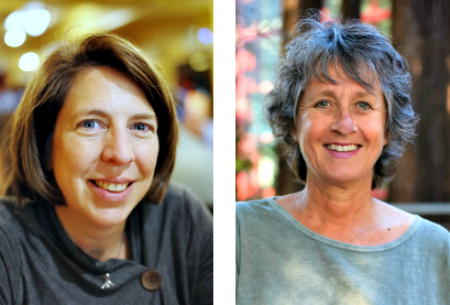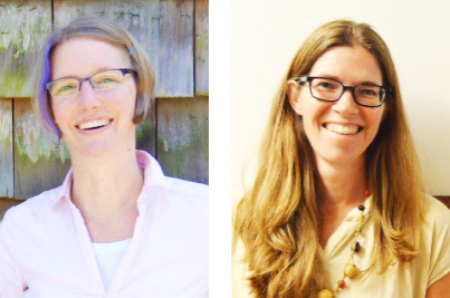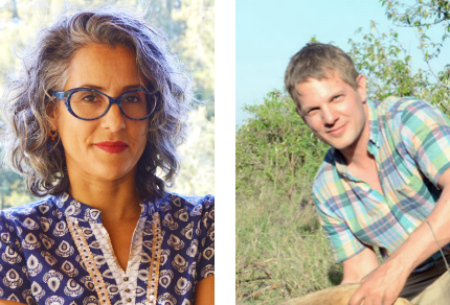Six UC Santa Cruz professors will deliver lively “Ed Talks” describing how their research confronts and connects contemporary issues when the UCSC Social Sciences division holds its third annual Research Frontiers event.
This year the event takes place in the evening – Thursday, Nov. 5 from 5:30-8 p.m. at the Museum of Art and History in downtown Santa Cruz. Research Frontiers Evening is free and includes food and wine. It is open to the public with pre-registration required.
“We wanted to ensure the community has a great opportunity to learn more about our social science faculty and the collaborative research they do engaging key issues of the 21st century,” said Social Sciences Dean Sheldon Kamieniecki. Previous Research Frontiers presentations have been during the day and on campus.
After opening remarks from Campus Provost/Executive Vice Chancellor Alison Galloway and Dean Kamieniecki, Research Frontiers Evening will feature two simultaneous tracks, each with three 20-minute talks.
Speaking on the theme “Eat & Be Eaten: Environment and Food” will be:
Julie Guthman, “Wicked Problems for California’s Strawberry Industry.” Guthman is a geographer and professor of social sciences, community studies. Her research interests include food, agriculture, environmental health, and nutrition. On sabbatical this academic year, she will spend some time on a fellowship at the University of Sydney Environment Institute and is scheduled to deliver the New Zealand Geography Lecture at the annual Agrifood Research Network conference in December.
Stacy Philpott, “Urban Gardens: Sources of Beans, Bees, and Benefits.” Philpott holds the Ruth and Alfred Heller Chair in Agroecology, is an associate professor in environmental studies and interim executive director of the Center for Agroecology and Sustainable Food Systems. She is an agroecologist interested in community ecology, ecosystem services, urban agroecology, and interactions between agriculture, conservation, and farmer livelihoods.
Chris Wilmers, “Fear and Predators: How predators fear of humans shapes their behavior and our ecosystems.” Wilmers is an associate professor in environmental studies whose research focuses on the effects of global change on wildlife populations. For the past seven years he has worked monitoring the travels of mountain lions in the Santa Cruz mountains with the Santa Cruz Puma Project.
Speaking on the theme “Social Justice: Kids, Countries and Citizenship” will be:
Melissa Caldwell, “Living Faithfully in an Unjust World: Practicing Kindness in Today's Russia.” Caldwell is a professor of anthropology and editor of Gastronomica: The Journal of Critical Food Studies. Her research examines everyday political life in Russia and the former Soviet Union, with particular attention to issues of social justice and inequality, material culture, and cultures of creativity.
Regina Langhout, “Children, Mural Making, and Participatory Action Research: How Children Made a Difference at their School." Langhout is an associate professor in psychology and provost of Oakes College. Her research examines empowerment, and the processes for disempowered groups to take more control over the psychological and material resources that affect their lives. She is participating in a four-year U.S. Department of Education study with colleagues at six other universities on how best to support access and success for underrepresented and low-income college students.
Catherine Ramírez, “"Assimilation and Noncitizenship." Ramírez, associate professor of Latin American and Latino studies and director of UCSC’s Chicano Latino Research Center, works on 20th century Mexican American history, histories of migration and assimilation, Latino literature, feminist theory, and comparative ethnic studies. She is planning a year-long program beginning next spring that will look at migration, belonging, and noncitizenship funded by the Andrew W. Mellon Foundation.





